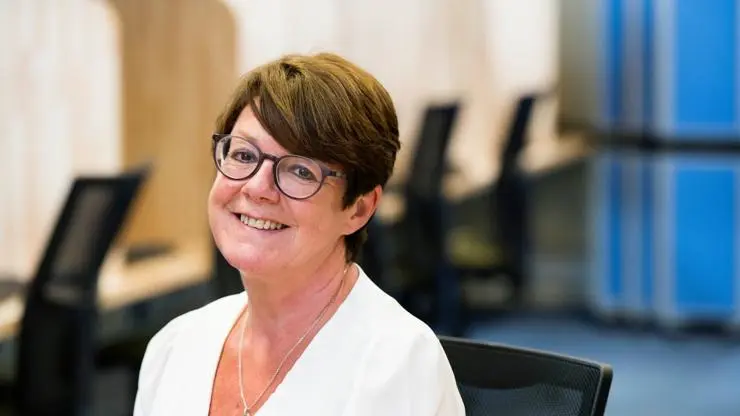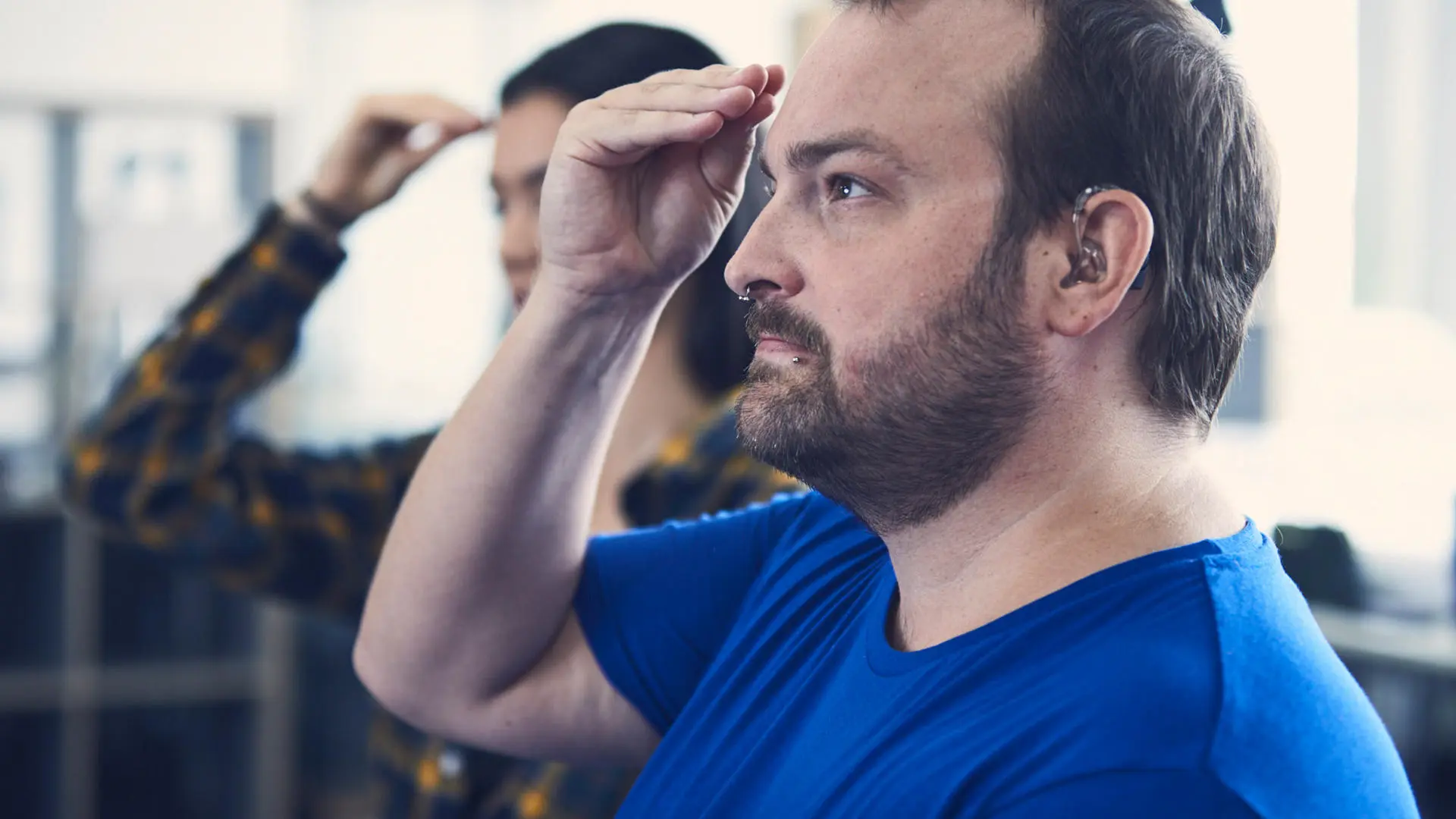Recent Successes
I was awarded the NADP Lifetime Achievement Award. Each year the National Association of Disability Practitioners, NADP, recognises one individual in the disability and inclusivity field for their sustained contribution to making a really positive difference to the experiences of disabled students and/or disabled staff in higher or further education. I received this award largely for the work I have done in the field of support for deaf students. I am convenor for CHESS – the Consortium of Higher Education Support Services for Deaf Students. As such I am involved in training disability practitioners, influencing government policy on deaf student support, research into the pedagogy of deaf learners and so forth. I was thrilled and very humbled to receive this award.
Lynne’s Journey
In a previous life I was a qualified teacher of the deaf and then specialised as a Lecturer for Deaf Students in further and higher education. When I was offered the job of Lecturer in Deaf Studies here at UCLan, they also asked me to be involved with Student Services in helping to develop a support service for deaf students. I was seconded to Students Services on a 0.3 basis as an Adviser for Deaf Students. Alongside Catherine Badminton I was involved in writing guidelines for the university on teaching deaf students, marking deaf students work, assessing deaf students etc. Whilst no longer seconded to that role, I am still involved with the Inclusive Support Team and provide advice and training on an informal basis.
National Teaching Fellow of the Higher Education Academy
This was quite a long time ago now. As with the NADP Award – this was awarded largely for the work I undertake nationally regarding the support of deaf students, beginning at a time when there were very few universities that had considerable numbers of deaf students. It was also awarded for the role I had in developing BSL & Deaf Studies at UCLan. There are still relatively few universities that offer Deaf Studies courses, so the award was a great vehicle to raise the flag for UCLan – and help to bring BSL & Deaf Studies to the forefront on the national stage. To be a National Teaching Fellow is a great personal honour – but the honour is also a recognition of the work of an excellent team of colleagues and the support BSL & Deaf Studies has received from UCLan.

Areas of interest and expertise
I am a qualified Teacher of the Deaf, and so the education of deaf learners is a particular area of expertise and interest. My research has included issues in access to Higher Education and the barriers to learning that deaf students face. My most recent research looked into the wider challenges our deaf graduates faced in acquiring employment after leaving UCLan. This interested me greatly; UCLan provides second to none support for deaf students – and deaf graduates are successful in attaining good degrees – and yet, they struggle to find mainstream employment. There are obviously many reasons for this – but it appears that years after the advent of disability legislation, the playing field is still not level.
Exciting projects
Research-wise, I am working with colleagues from ISLanDS and the University of Cumbria to examine the changing role of deaf-student support in light of government changes to the Disabled Students Allowances and the recent pandemic.
Other projects I am involved in are Erasmus+ projects – working with colleagues from BSL & Deaf Studies and a host of European partners. The first one is developing a virtual Deaf Museum to record the changing lives of deaf people through their own eyes. Hampered a little by Covid – we hope to start interviewing people from the deaf community as soon as we can.
The second is looking to provide online training resources, advice and good practise for sign language teachers. Drawing on recent experience and challenges, we will focus on how to teach a visual language online. Before the pandemic and lockdown, teaching sign language online was thought to be largely inappropriate. However, the past 18 months have shown that the impossible cannot only be possible but there are many strengths and take-home messages from online sign language learning.

